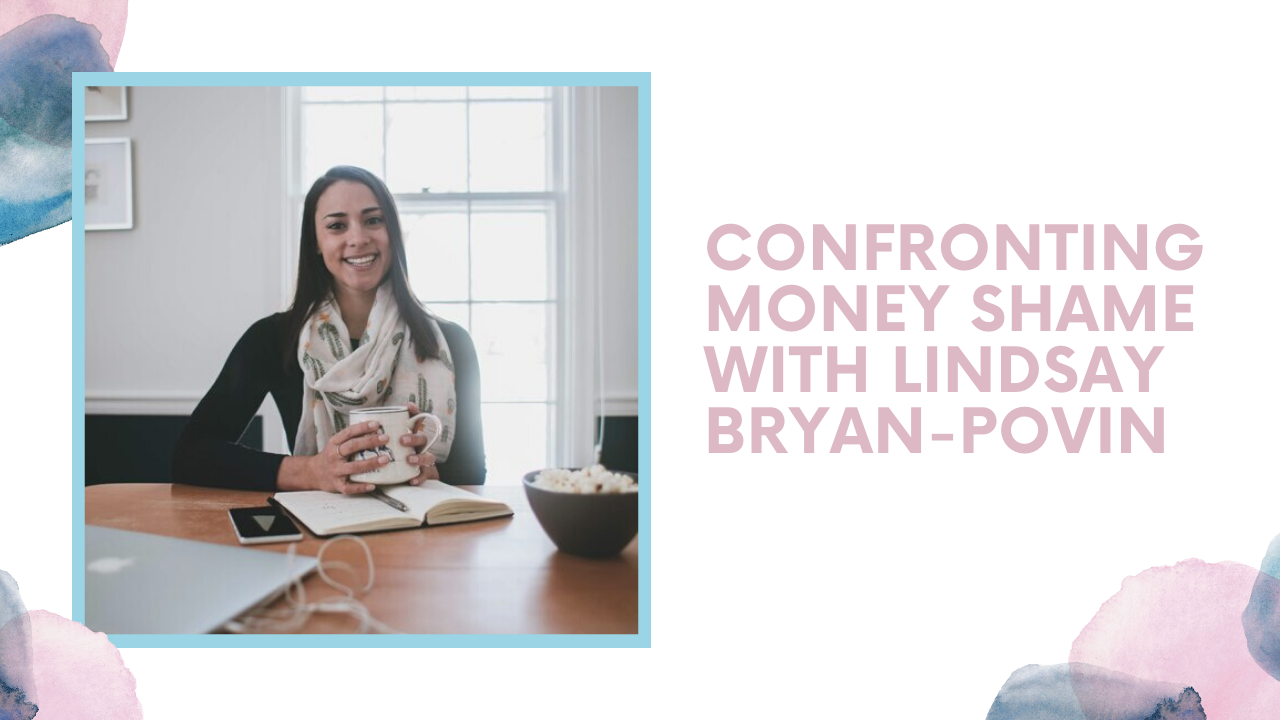Confronting Money Shame with Lindsay Bryan-Podvin
By Eva Tirion
“I’d always thought that money was outside the realm of something I could do, so every time I learned a little bit more and could implement things, it felt so empowering.”
Like many millennials, Lindsay Bryan-Podvin graduated from college right before the recession. She was privileged to graduate with a degree in sociology without any debt and quickly settled into an all-expenses-paid-for corporate marketing role.
Then the stock market crashed. “I spent all my money traveling,” Bryan-Podvin reminisced. “I could see my patterns with money weren’t sustainable. So I started checking out books and self-teaching. When it started to click, it felt so good.”
After re-evaluating her interests and discovering a passion for financial social work, Bryan-Podvin became one of only fifty financial therapists in the United States. Her work questions how we behave and interact with money in our society based on our genetic and social imprint: how we experienced money in our childhood, how we define success now, and the barriers to financial wellbeing we may face based on race or gender.
Speaking to The Community last Tuesday, Bryan-Podvin explained two prominent themes that come up in discussions with female clients relating to money shame. The first is the fear of “messing up” by overspending or investing incorrectly in ways that would make their money disappear. The second is a narrative along the lines of “how dare I have money when so many people have less than I do.” This notion partially stems from the socialization of generations of women to be caregivers and nurturers, not high-earning CEOs. It also aligns with proven research that as women earn more, they give more of it away. While men might humbly tone down their wealth in social settings, they tend not to feel guilt or shame in the same capacity.
Bryan-Podvin teaches that while you can give, make sure you deconstruct your own money shame first. If you have a negative idea about your own financial abilities (for example, “I will never be good at investing”), examine what evidence you have to back up this claim and reevaluate if it is actually true. “We like to hold onto the idea that we are worse than we are,” Bryan-Podvin explained. “We are our harshest critics.”
Bryan-Podvin discussed how spiritual bypassing (ie. “If I just manifest a brand new BMW, I’ll get it!”) is extremely harmful to those working towards financial wellbeing. Spiritual bypassing discounts inherent privileges that a person may have: their network, their income, their race, or their gender. “We know there is power in positive psychology and speaking nicely to yourself and thinking happy thoughts, but what I have seen happen and what other folks have seen happen is the idea of spiritual bypassing,” Bryan-Podvin noted. “It’s really harmful for particularly women and even more so for women of color because it totally undermines their experience in the world and the real barriers they face.”
Want to be a part of the conversation? Join The Community to attend live events with financial experts monthly!
Lindsay Bryan-Podvin is a bi-racial financial therapist, speaker, and author. She’s passionate about helping high-earning couples re-commit to their relationships using shame-free money therapy and coaching. It’s her mission to teach all of her couples how to stand in their power by including money in their relationship. Learn more about Lindsay on her website and social media.

